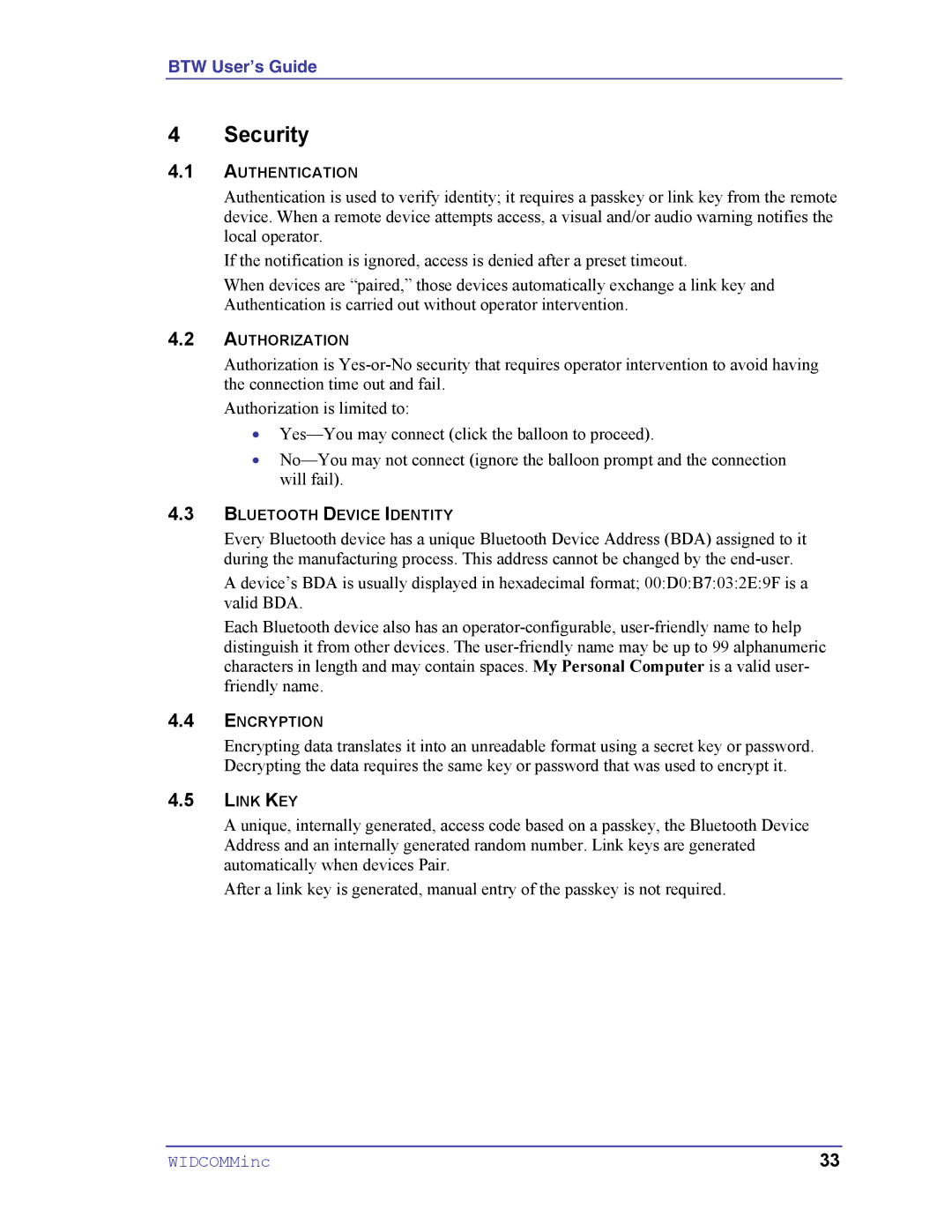
BTW User’s Guide
4Security
4.1AUTHENTICATION
Authentication is used to verify identity; it requires a passkey or link key from the remote device. When a remote device attempts access, a visual and/or audio warning notifies the local operator.
If the notification is ignored, access is denied after a preset timeout.
When devices are “paired,” those devices automatically exchange a link key and Authentication is carried out without operator intervention.
4.2AUTHORIZATION
Authorization is
Authorization is limited to:
•
•
4.3BLUETOOTH DEVICE IDENTITY
Every Bluetooth device has a unique Bluetooth Device Address (BDA) assigned to it during the manufacturing process. This address cannot be changed by the
A device’s BDA is usually displayed in hexadecimal format; 00:D0:B7:03:2E:9F is a valid BDA.
Each Bluetooth device also has an
4.4ENCRYPTION
Encrypting data translates it into an unreadable format using a secret key or password. Decrypting the data requires the same key or password that was used to encrypt it.
4.5LINK KEY
A unique, internally generated, access code based on a passkey, the Bluetooth Device Address and an internally generated random number. Link keys are generated automatically when devices Pair.
After a link key is generated, manual entry of the passkey is not required.
WIDCOMMinc | 33 |
